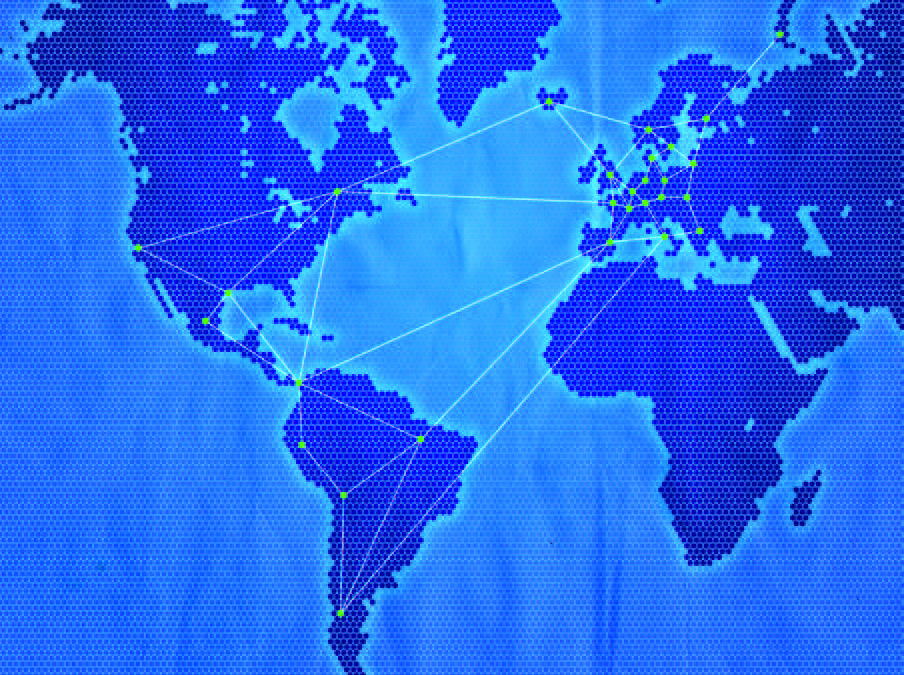Posted by Dan Richman, Program Assistant for the Community Engagement Fellows Program.

The American Chemical Society’s International Center recently hosted a webinar called Partnering Globally: Maximizing Effectiveness with Multicultural Teams. It was led by Katherine Glasgow, Vice President of Global Product R&D of Nomacorc, who talked about managing and being part of a multicultural and multinational team.
Here, we summarize key points from the webinar and share strategies for international collaboration.
Teamwork 101
The elements of “Teamwork 101”, the fundamental requirements for a successful team, are even more challenging to get right remotely than in person:
– Credibility: Make statements based on facts, be honest when you don’t know.
– Reliability: Deliver on what you say you will do.
– Openness: Invite and accept challenges to your ideas.
– Being in tune with others’ needs: Keep track of who’s engaged and who’s silently dissenting (It’s really hard to sense this when you’re not in the same room!).
US Culture of Communication
The United States has a unique culture of communication that can alienate international colleagues. Here are the US-specific cultural quirks to be aware of and avoid when working with people in other countries:
– Being too “all business all the time”: Instead, ask about non-work things (Katherine Glasgow says soccer is a good choice!)
– Assuming no news is good news: Instead, explicitly check for understanding
– Assuming silence is acceptance: Instead, don’t be too quick to declare success and move on, because others might not speak up if they don’t agree (other cultures might not be so used to raising challenges in a group setting)
– Focusing on what needs to get done next: Instead, take time to thank/recognize/celebrate*
*Note: When rewarding individual accomplishments, possibly talk in confidence with other members of the local team to check in about their agreement about the special praise that one of their local members may have earned. Team events should probably be charity work or group activity, not based on competition.
Language Considerations
Not making adjustments for non-native speakers sends the message that they’re not as important as the local/native English speakers. Here are some things you can do to avoid this pitfall:
– Tone down colloquialisms: Translate them into more plain, direct speech
– Show you want to hear from people: Ask ahead for agenda points in writing, share the floor, ask for contributions/questions/concerns
– Show you have heard them: Repeat what you’ve heard to ensure understanding, follow up with written minutes that capture main discussion points, and follow up later with actions or updates on the things people expressed concerns about
Using Technology
Technology is essential for international collaboration. Here are some tips for making the most out of your digital tools:
– Use videoconferencing and web-meeting software if available, where one presenter shares a presentation and advances the slides.
– Make extra sure that content is clear: Slides with key conclusions, summaries of discussions and decisions, and pictures and videos are all worth the effort
– Shared document and data storage sends the message that all contributors are part of the team
– Invitations to webinars to share training are appreciated
Some general suggestions
– Ask for feedback: The best way to show someone you value their opinion is to ask for it, and get accurate feedback using tools for anonymous input
– Instead of putting the spotlight on someone during an event, prepare ahead of time and invite them to present their own work or provide feedback
– Be sensitive to time zones and balance who is more inconvenienced by time zone differences in communication
– Ask for and share holiday and vacation calendars
– Identify key personnel to have one-on-one phone calls with every week or two (build personal relationships, know the local discussions and issues, and find out about potential fires before they’re raging).
– Travel when needed: If the local team does not agree on the path forward, technical support is needed, or answers are not making sense. Travel could also be worthwhile to build credibility by sending experts to a different project going on elsewhere.
Main Message: Taking extra steps to check for understanding builds trust.
The effectiveness of your collaboration depends on openness. If you make the effort to get everyone on the same page, it shows that you value their presence in the group. The trust that you earn will lead to openness and effective teamwork.
Share your experiences!
If you have experience working in an international or multicultural context and have more tips for international teams, please share them in the comments!
Further resources for international work can be found here: http://global.acs.org
Follow the American Chemical Society’s International Center on Twitter: @ACS_IC